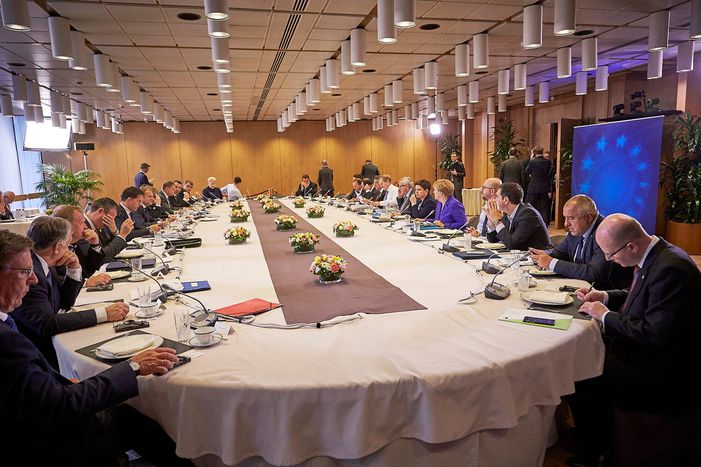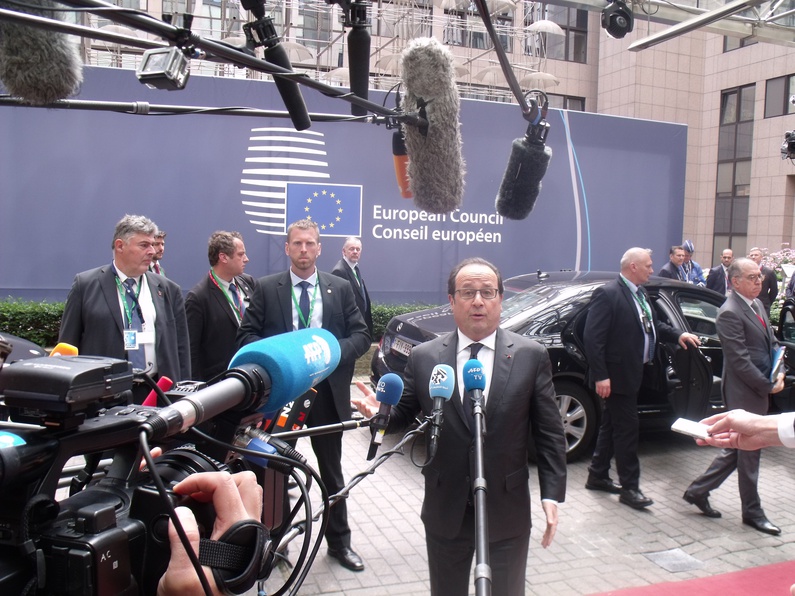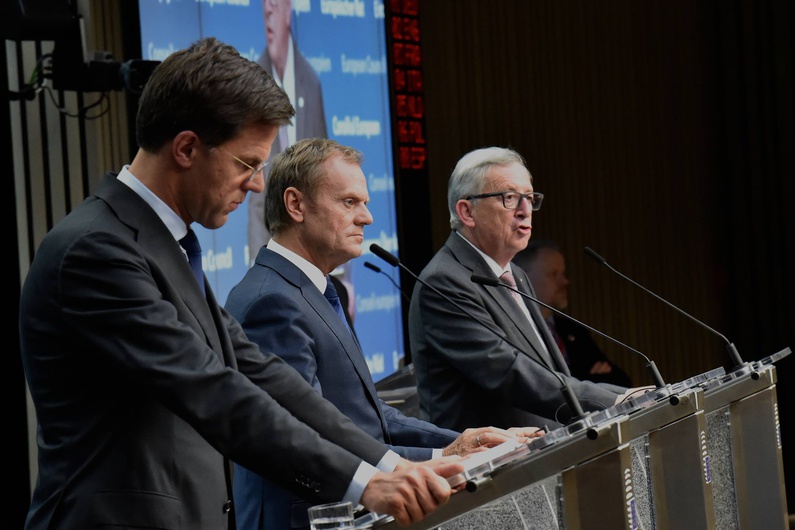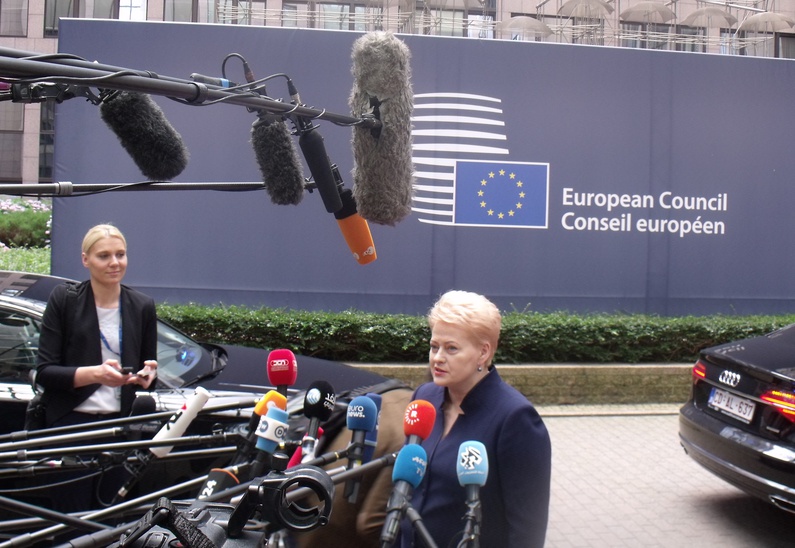
Brexit: 27 member states confront the United Kingdom
Published on
Translation by:
Carrina LaCorataDoes pressure need to be put on the United Kingdom to officially ask for a divorce from the European Union? This is the question the 27 member states tried to answer at the European Council on June 28th and 29th. Even in spite of strong differences.
“This is not Facebook where the status is complicated. Here, you’re married or you’re not.” These are the words Xavier Bettel, the prime minister of Luxembourg, used to address the cameras when he arrived at the June 28th and 29th European Council in Brussels. He even misspoke when talking about a “battle map” as opposed to a “road map”.
His tone mimics those of several European leaders following the June 23rd referendum in the United Kingdom. Ever since this unprecedented political event, the heads of state and government of the most pro-Europe countries are in fact putting pressure on the British to finally communicate their intentions to the European Union before starting the exit negotiations that are estimated to last two years. The United Kingdom is called to act on the results of this referendum by notifying its intention to leave the EU through the notorious article 50 of the Treaty on European Union (TEU).
"I will not accept Europe and Belgium footing the bill."
Following Mr. Bettel’s example, François Hollande, Angela Merkel, and even Charles Michel appeared determined; the prime minister of Belgium also affirmed, when he arrived, that he would not accept “Europe and Belgium footing the bill for the decisions made in Great Britain.”
At the very least, the “Europhiles” displayed a clear desire: it must be done quickly. The United Kingdom must promptly disclose its desire to leave the EU. Why? The idea is to start the exit negotiations as quickly as possible to give the Union as much clarity as possible, to reaffirm its authority and to avoid further suffering from the results of this referendum, even if it means seeming rather harsh regarding the future ex-member state.
This is exactly what Jean-Claude Juncker reaffirmed during the press conference he gave with Donald Tusk, president of the European Council, and Mark Rutte, prime minister of the Netherlands, the evening of June 28th. “I hope that the United Kingdom’s announcement will come as quickly as possible. It’s necessary to pick up the pace.”
"Welcome back!"
But it’s difficult to see perfectly united politics in an EU of 27, where euro-skepticism is gaining ground, as demonstrated in the last presidential elections in Austria, which saw the extreme right obtain almost 50% of the vote during the second round. For the states desiring less political integration, the tone was much more aggressive these last few days. Questioned on the possibility of a non-notification about the departure of the EU from the British government, the Lithuanian president, Dalia Grybauskaite, had a hint of smile when responding, “Welcome, welcome back!”
Lars Lokke Rasmussen, prime minister of Denmark, a country that could be the next one, according to some, to ask for a referendum in this matter, called for a “peaceful divorce” with the United Kingdom. While the prime minister of Czech, Bohuslav Sobotka, declared that, on his part, “Brexit will take several years, and it should not be a priority in the European agenda,” while also pleading for changes in the European Commission’s operations.
So, there was no unanimity between the leaders at the outset of the first meeting dedicated to the future Union of 27. 
A resolute response
But the 27 member states have to provide a collective response and display their unity at the time of this new European Council. Incidentally, that’s what had been affirmed by the group of the heads of state and government before this historic meeting.
In light of conclusions, the consensus reached seems more resolute, in line with the opinions expressed by the pro-European leaders, like François Hollande or Angela Merkel. In this way, the European Council reaffirmed, in a declaration, that it’s up to the United Kingdom to inform the Union of its intention to leave. And “this must be done as quickly as possible.”
But in spite of this resolution, everything is not regulated. Far from it. The United Kingdom must first communicate, and they have not said they will do this within the next few weeks. Then, the most likely lengthy negotiations will take place between the Kingdom and the 27 member states who must come to an agreement regarding the status that the ex-member state will have. Faced with this unprecedented legal and political situation, it is impossible to speculate today on the future relations between the United Kingdom and the continent.
Translated from Brexit : les 27 face au Royaume



